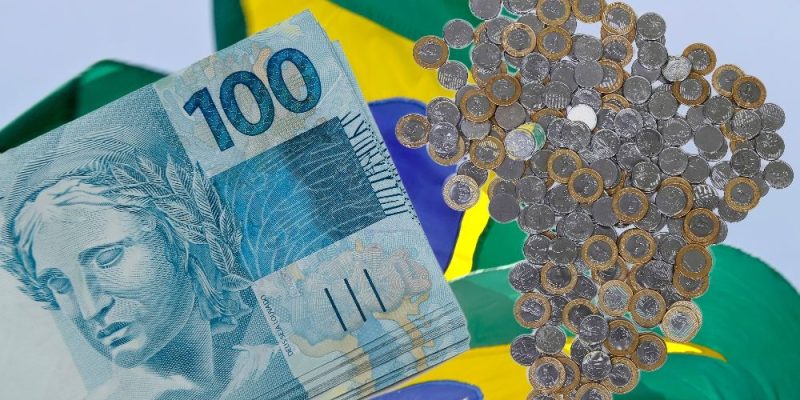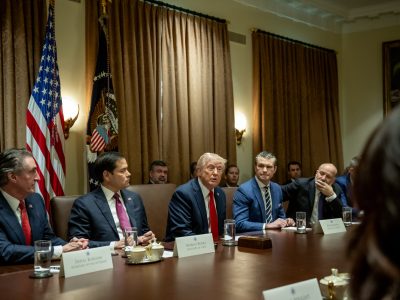
President Luiz Inacio Lula da Silva has upped his criticism of the country’s worrying interest rates, expressing his serious concern for the Brazilian economy.
In a recent interview, Lula said that high interest rates are “the only thing wrong” with Brazil’s economic framework.
His remarks were especially pertinent, coming on the heels of the central bank’s contentious decision to raise interest rates by 100 basis points, bringing them to a worrying 12.25%.
This action represents a forceful monetary policy response aimed at fighting growing inflationary pressures and alleviating market concerns about Brazil’s overall fiscal health and stability.
Lula, speaking frankly to TV Globo after successfully completing treatment and being freed from the hospital, said that inflation is effectively under control, with a current rate of roughly 4%.
He firmly identified high borrowing prices as the principal source of economic distress for the average Brazilian citizen, stating unequivocally, “There is no explanation for interest rates being above 12%.”
This bold argument highlights a major and rising gap between the Lula administration’s economic strategies and the central bank’s monetary policy.
Tightening measures by the central bank raise concerns
The central bank’s recent decision to tighten monetary policy is a direct response to the changing dynamics of inflation, which have subsequently deviated from their set aim.
The central bank disclosed that the market’s lacklustre reception of Lula’s ambitious projected fiscal package had a significant impact on worsening inflationary pressures.
Brazil’s inflation rate has risen to 4.87% over the 12 months ending in November, above the bank’s goal range of 1.5% to 4.5%.
During his discussion, Lula opposed the widespread assumption that higher interest rates are an essential tool for controlling inflation.
He slammed proponents of such rate hikes as “irresponsible,” instead pushing for a fresh commitment to total economic prudence said Lula: “If I do not control spending, if I spend more than what I have, the poorest will pay for it.”
This emphasis on fiscal accountability not only demonstrates Lula’s long-standing commitment to cautious management of Brazil’s public finances, but it also demonstrates a strong commitment to the welfare of the country’s most disadvantaged residents.
Market and currency concerns
Despite Lula’s strong comments about the importance of fiscal responsibility, market reactions show a growing tide of fear about Brazil’s future economic trajectory.
The Brazilian real has dropped to historic lows, owing mostly to persistent uncertainty about the government’s proposed spending controls.
While the administration has promised significant fiscal reforms, many opponents believe the original package fell short of appropriately addressing the urgent need to reduce increasing public debt and restore investor confidence.
Lula defended his economic policy, claiming that the measures previously proposed to Congress were the most practical and expedient solution to Brazil’s current economic issues.
“We did what was possible and sent it to Congress,” he announced, emphasizing the crucial necessity for immediate parliamentary approval to stabilize the nation’s financial environment.
A shift in the central bank’s leadership
The central bank’s leadership structure is about to undergo considerable adjustments in light of the current economic situation.
Governor Roberto Campos Neto, who was appointed during the government of former President Jair Bolsonaro, is set to be replaced this month by Gabriel Galipolo, a nominee personally chosen by Lula.
This key transfer in leadership is expected to reset the balance of power inside the central bank’s decision-making committee, moving from a 4-5 minority to a more favourable 7-2 majority aligned with Lula’s economic program.
Observers are waiting to see how Galipolo’s appointment would usher in a more accommodating monetary policy that is squarely aligned with Lula’s aspirations for economic recovery and long-term prosperity.
With two critical rate-setting sessions approaching, it is widely assumed that Lula’s nominated committee members will urge for a thorough rethinking of the dramatic rate hikes achieved by their predecessors.
Looking ahead: economic stability or stagnation?
As Brazil navigates this nuanced and convoluted economic terrain, the central bank’s next actions will be crucial.
Lula’s unwavering commitment to limiting inflation, while also condemning chronically high interest rates, represents a deeper ideological confrontation between the ideals of economic stimulus and conservative monetary policies that dominate the current debate.
The outcome of the government’s proposed fiscal package, combined with the implications of leadership changes within the central bank, will determine whether Lula can strike a harmonious balance between promoting robust economic growth and maintaining fiscal responsibility.
As Brazil prepares for imminent policy upheavals, the goal remains to achieve a united approach that supports both the country’s economic engine and its most vulnerable residents.
If Lula’s administration can successfully manage the challenges of this transition period, it has the potential to bring in a new and transformational era of economic stability and growth in Brazil.
However, the path ahead is fraught with hurdles, demanding astute governance and collaborative policymaking to achieve these lofty objectives.
The post Lula takes aim at Brazil’s high interest rates: a call for economic change? appeared first on Invezz









